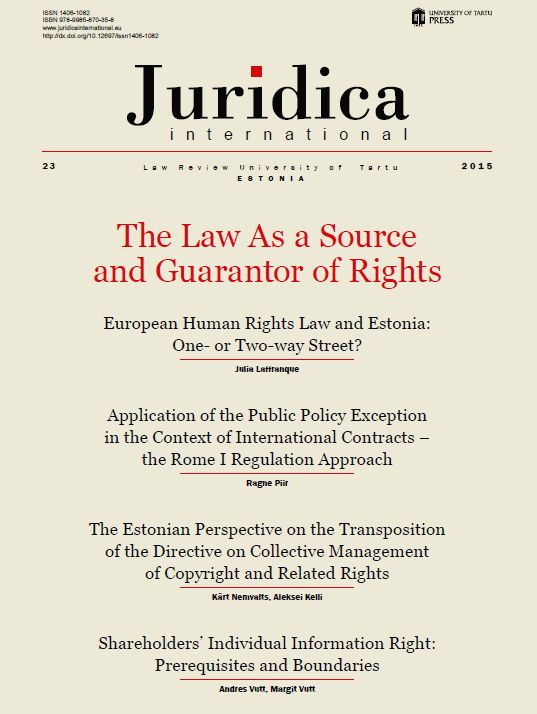The Health-care Provider’s Civil Liability in Cases of Wrongful Life: An Estonian Perspective
DOI:
https://doi.org/10.12697/JI.2015.23.05Keywords:
Wrongful life, disabled child, non-existence paradox, health-care provider’s delictual liability, health-care provider’s contractual liability, damage, limits on the compensation for damageAbstract
Nowadays, Estonian society encourages responsible parenting and the need for family planning is generally considered self-evident. Parents expect to eliminate the risks to the health of the child to be born, with the health-care provider’s assistance. The unexpected birth of a disabled child causes pain and suffering to the parents and the child, along with economic hardship due to additional costs arising from the disability. However, it should be clear that not every birth of a disabled child can or should be followed by the health-care provider’s obligation to compensate for the damage. While case law addressing issues of wrongful life is absent in Estonia, the article is aimed at providing possible solutions under Estonian law to some of the legally complex problems of the associated cases through analysis of Estonian, German, and US legal literature and case law. The article is focused mainly on the prerequisites for contractual liability under the Estonian Law of Obligations Act. Among other factors, the existence of legally cognisable harm, the non-existence paradox, and the protective effect of the contract for provision of health-care services are analysed.


